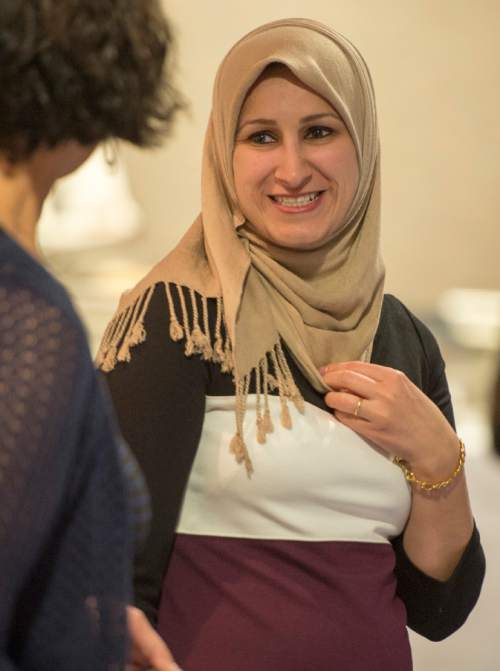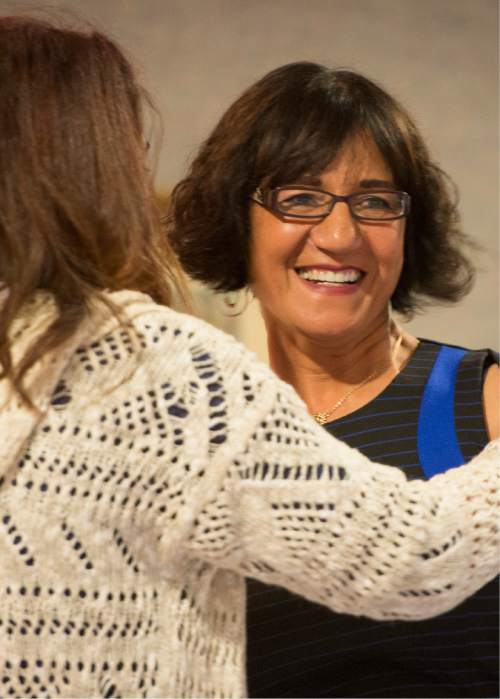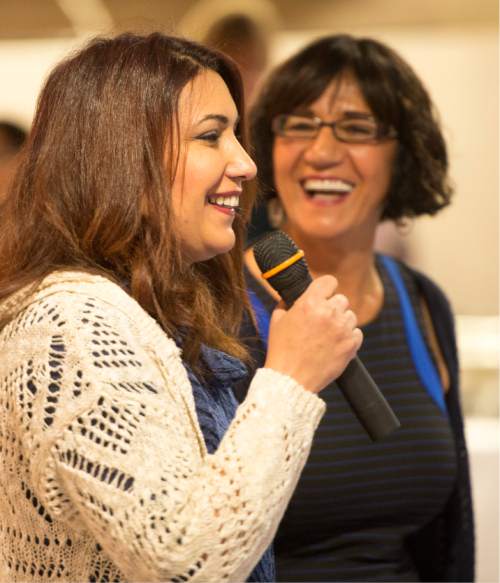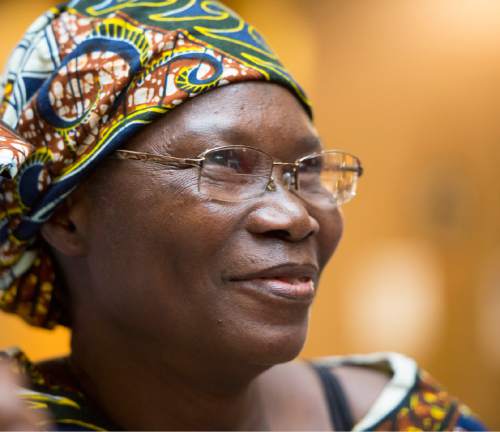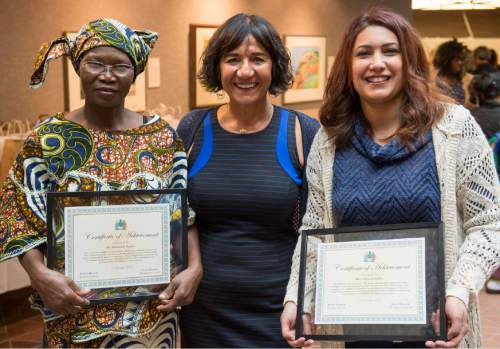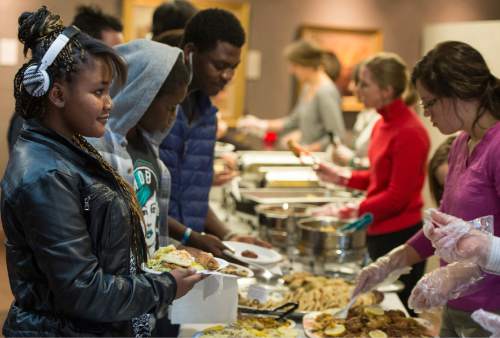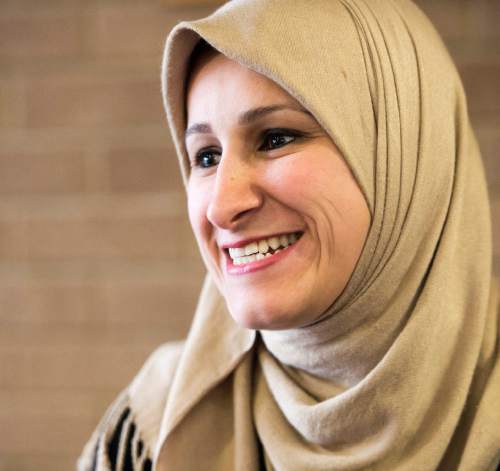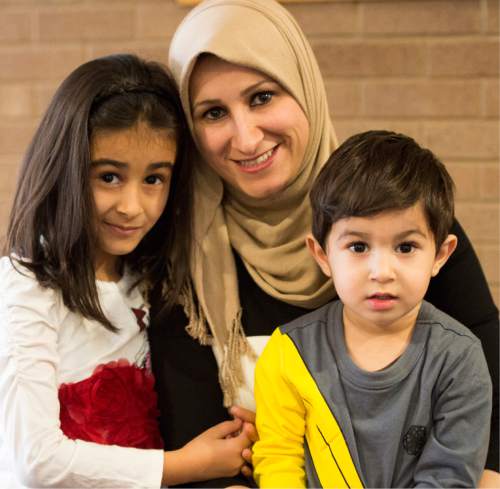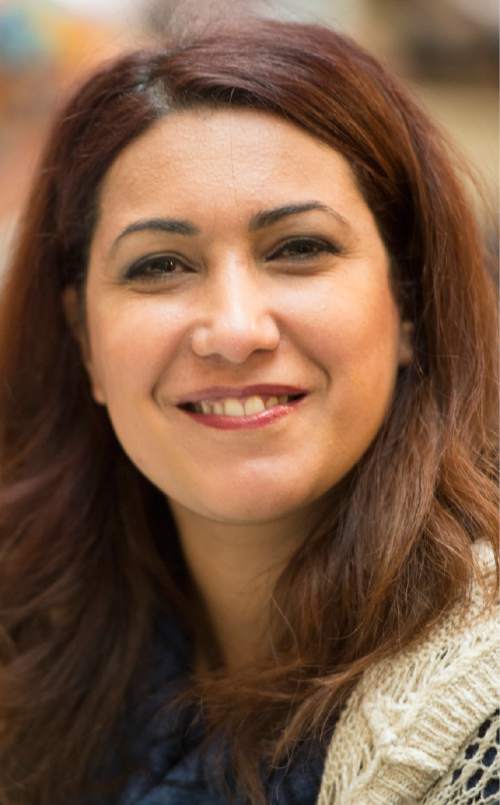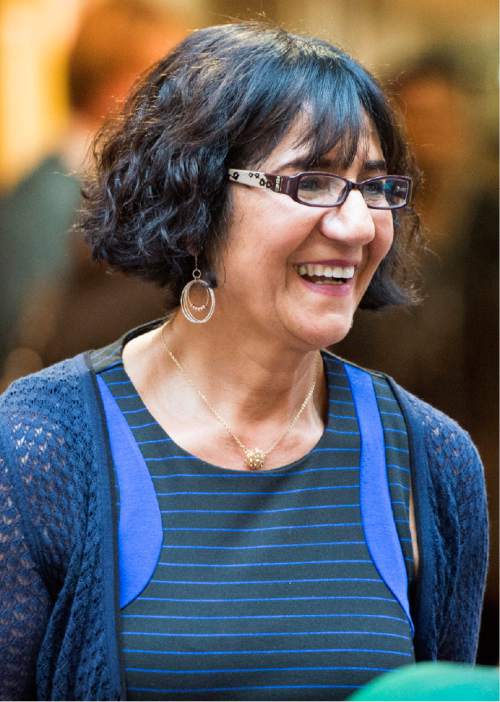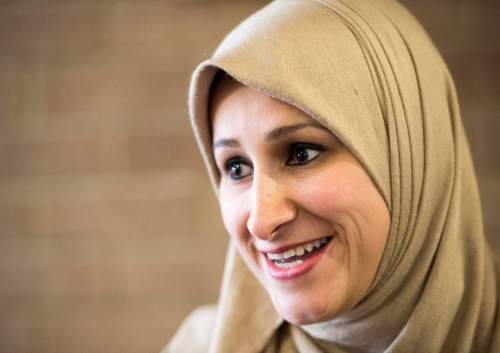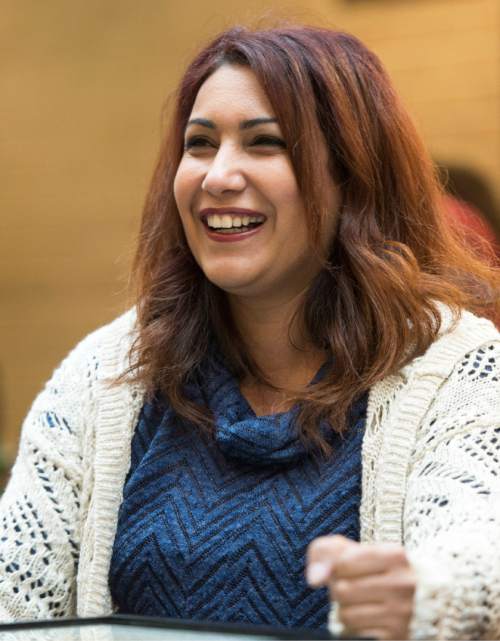This is an archived article that was published on sltrib.com in 2014, and information in the article may be outdated. It is provided only for personal research purposes and may not be reprinted.
The temptation for many women refugees transplanted into a culture they don't understand is to keep their worlds small, centered in the home.
On Saturday, the non-profit Women of the World brought together more than 100 women refugees and their families to celebrate those who instead are seizing job and educational opportunities in their new country.
Founder Samira Harnish, a native of Iraq, gave six women framed certificates honoring them for their courage and industriousness in Utah. Young women from Africa danced, and all feasted on food from around the world. It was the fourth year for the celebration.
Elizabeth Ngaba, from the Central African Republic, came to Utah five years ago after spending five years in a refugee camp in Chad and then eight months in Rhode Island.
"I feel very happy!" said Ngaba, who formerly worked as a housekeeper but now attends school and cares for her aging mother. She came to Utah with her mother and three children.
Sara Hussein Aljanibi earned a bachelor's degree in computer science in Baghdad before she and her husband fled Iraq in 2007. They spent a year in Syria and more than a year in Turkey before finally being resettled in Salt Lake City.
"The first year we came here it was so hard for us," Aljanibi, who arrived in Utah in the spring of 2009, told those gathered. "It's so hard, but it will get easy if you work hard. Don't be shy, keep asking people to help you."
Aljanibi said later that she was dismayed when the resettlement agency stopped helping her family, which by then included her infant daughter, Sedra, now 6. She has a 2-year-old son, Ahmed.
She felt abandoned just eight months after arriving in Utah.
"Now I see why they do that," Aljanibi said. "You have to start relying on yourself."
Aljanibi got a job as a teaching assistant at Woodrow Wilson Elementary, and is laying the groundwork to start a business supplying baked goods to grocery stores.
Her husband began college this fall, and when he finishes, she intends to pursue a business degree.
"I will have a business in the future," said Aljanibi, who became a U.S. citizen last month.
Two other Iraqi refugees were among those honored: Siham Mhalhal, a journalist in Baghdad who came to Utah six years ago with her daughter.
Her husband, an engineer, had worked for NBC and was killed during the war because of that work, she said. She also had lost a baby boy to illness in Bagdad. "I like it here, but I'm sad," said Mhalhal.
Her friend, Ghasaq Maiber, and her family also settled in Salt Lake City during the war. She worked as an interpreter for an Iraqi government agency, and her husband was an interpreter for the U.S. Army. If they had stayed, he would have been killed, she said.
Maiber is an aide for English-as-a-second-language and special needs students at Olympus High, and is working on a master's degree that will enable her to work with ESL students. She already has an English degree.
Maiber says she volunteers with Harnish's non-profit because Harnish is all about empowering women.
"She says, 'Just don't sit home! Discover the world where you are going to live!'"
Many women simply need someone to encourage them, Maiber said. "The just need a push."
Twitter: @KristenMoulton


